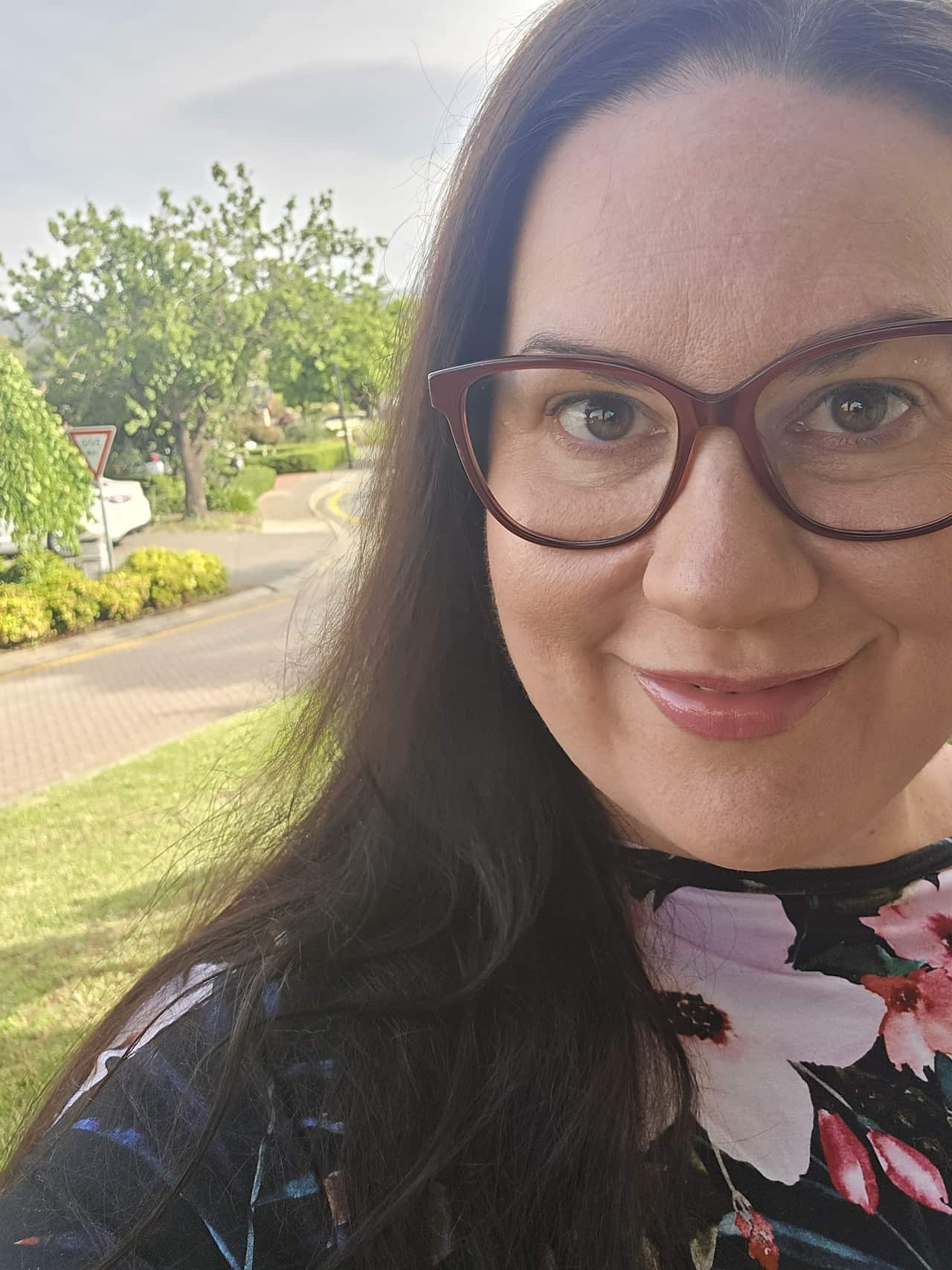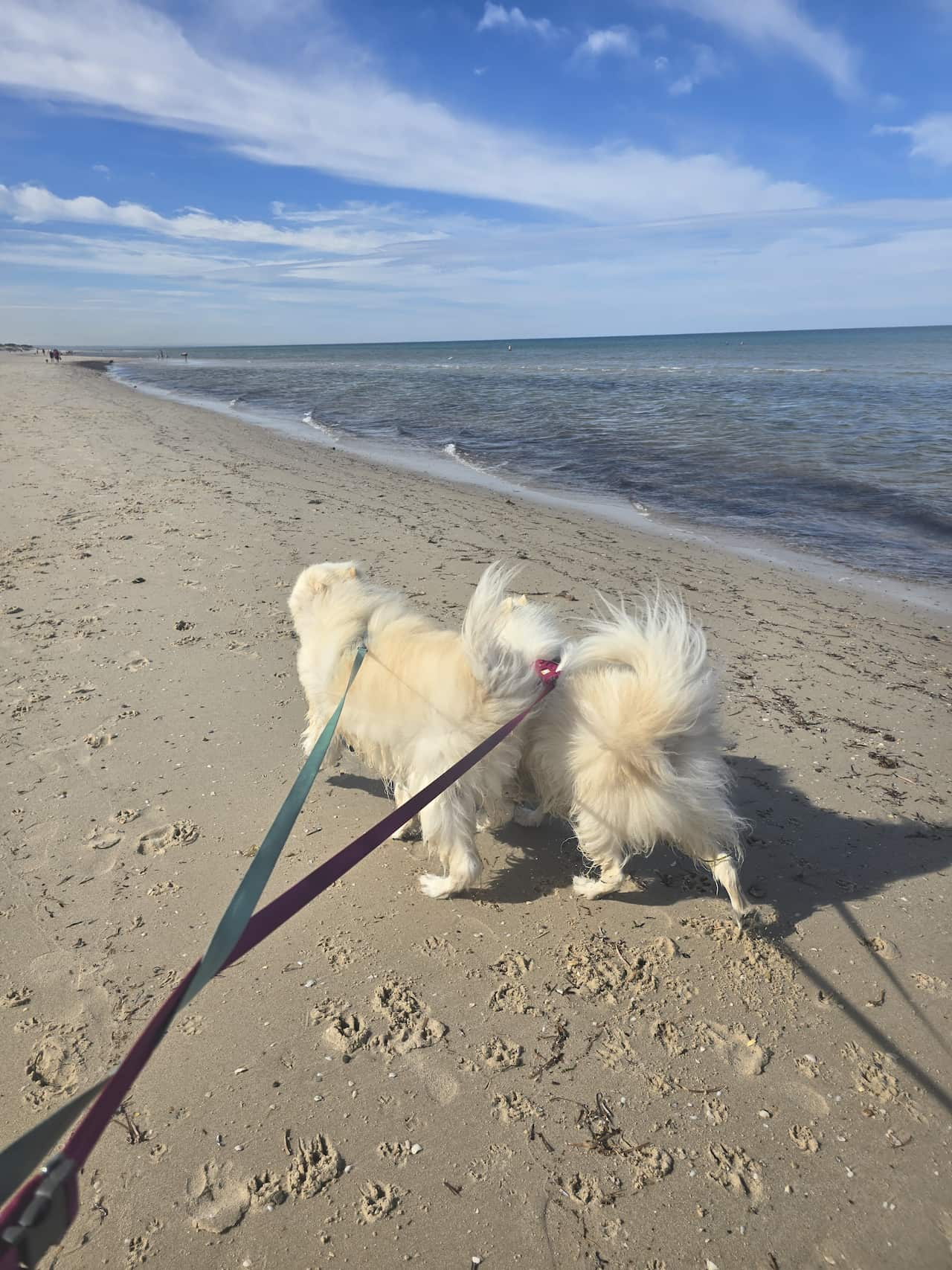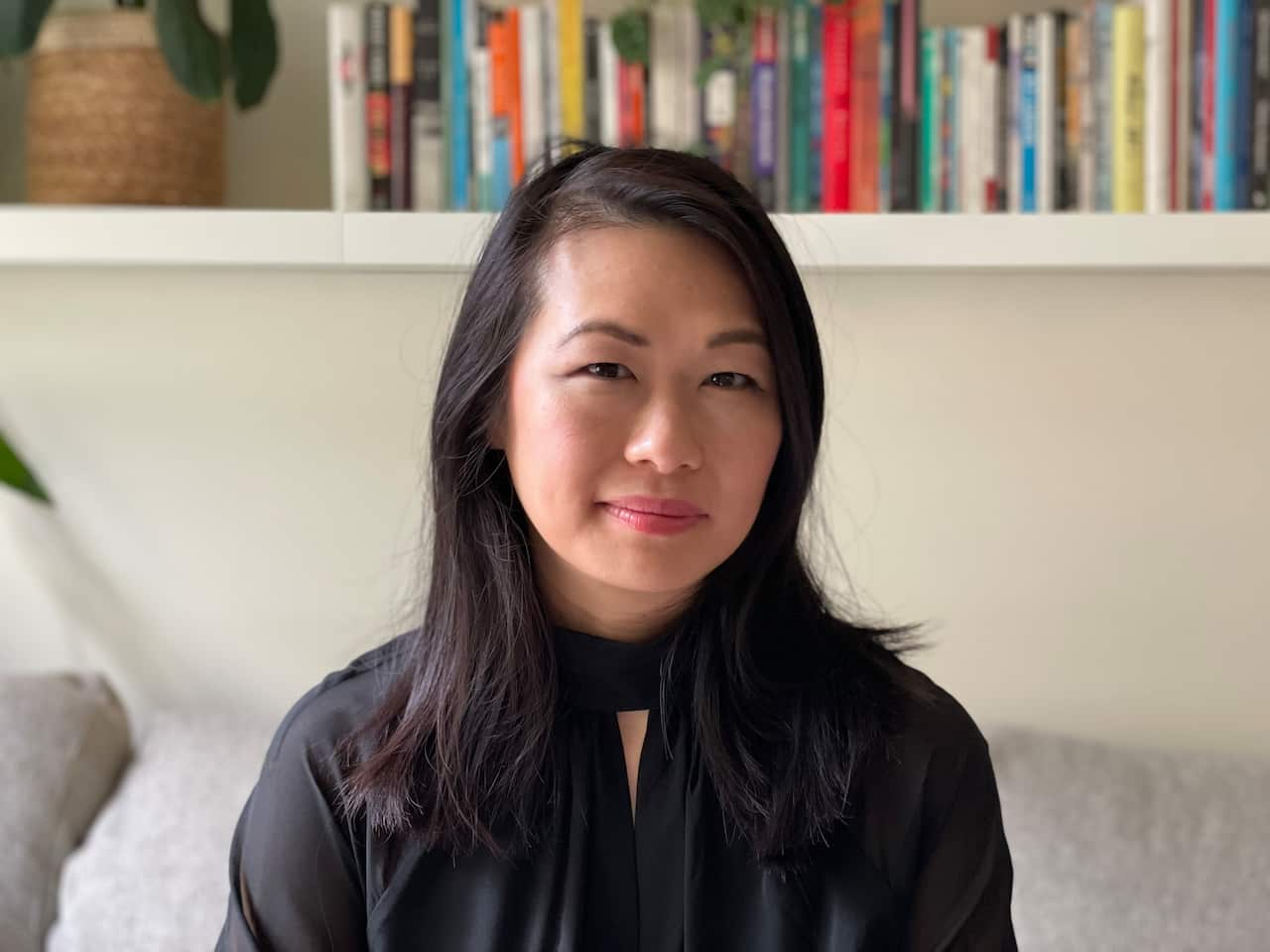After Cat Cherry and her husband amicably divorced in 2018, Cat found herself single for the first time since she was 13.
She turned to online dating — but her experience was so horrific that it completely turned her off dating forever.
The Adelaide woman said men she had arranged to meet stood her up or cancelled on her 15 times in a row.
“I’m a big Hallmark romance fan, so I always thought that I would find my person,” Cat told The Feed.
“I thought, if you’re a good person and you have a lot to offer, how hard can it be? And turns out those things mean absolutely nothing.”
Cat remembers the exact moment she decided to stay single for the rest of her life.
Cat Cherry is single by choice and fully prepared to spend the rest of her life without a partner. Source: Supplied
In January 2020, at the age of 35, she deleted her last dating app and stopped trying to find a partner.
“I am just happy in life and it’s just a circumstance that I don’t have a partner, in the same way I don’t have a Ferrari,” Cat said.
“If a miracle happens, then wonderful. But it’s not something that I actively think about.”
Australians are more single than ever
The proportion of people living alone has risen over time and is only expected to increase, mostly due to Australia’s ageing population.
Between 3.4 and four million people are projected to be living alone in 2046, according to the Australian Bureau of Statistics (ABS). That’s an increase of 30 to 50 per cent compared to 2021.
This is one of the ABS’ models:
On top of this, the number of single parents is projected to jump from 1.2 million in 2021 to between 1.6 and 1.7 million in 2046 — with male lone-parent families projected to be the fastest-growing type of family.
‘Boy sober’ and the rise of single empowerment
There’s now a push to reclaim singlehood, with singles shaking off unflattering labels like cat ladies, bachelors, spinsters, players and loners.
The ‘boy sober’ movement emerged this year, with scores of young women choosing to take a temporary break from dating, citing toxic dating culture and app fatigue.
One TikTok user, Hope Woodard, laid the ground rules for going boy sober: “No dating apps, no dates, no exes, no situationships”.
Rather than constantly chasing a relationship, the idea of the dating cleanse is to focus on self-reflection and self-development.
“I don’t know who I am without romance … to distract me from myself and my own real issues,” Hope, who worked out she’s had 40 exes, said in one video.
“[Boy sober is] to actually just figure out how to get over my addiction of romance.”
Some men are also swearing off dating — sometimes for good.
Kevin, a NSW man in his early 40s, has struggled to conform to dating culture his whole life. He’s never been a fan of grand gestures, planning lavish dates or confiding his deepest emotions in a partner.
“I’ve never felt the desire to get married or have kids,” he said.
“When I was in relationships … I was trying to be something I wasn’t and trying to put myself into a box.”
Shortly after he turned 30, Kevin decided to stop pursuing romantic relationships, and has been happily single for more than a decade.
“I’d love to retire young and move to the middle of nowhere and fish and do woodworking … disappear off the grid a little bit,” Kevin said.
For Cat Cherry, now 39, not having a partner at the centre of her world has given her the freedom to explore more hobbies and pursuits.
“I’ve learned so many new skills. I’ve been able to put more time and energy into friends and into new connections,” she said.
Being single has allowed Cat to spend more time on her interests, including hanging out with her dogs, going to the gym, doing arts and crafts and travelling. Source: Supplied
“I’ve got friends that have a very, very good relationships … they get home, they cook dinner, they sit on opposite ends of the couch and they scroll Instagram with the TV on, because that’s sort of just what happens to the vast majority of people.”
The downsides of being alone
Michelle Lim is the chief executive of Ending Loneliness Together, a national network aimed at addressing loneliness. She said not only are more Australians becoming lonely — we’re also staying lonely for longer.
Lim said loneliness becomes problematic when it lasts for 16 weeks or longer, and defines loneliness as “a subjective feeling of distress that comes up for you when you feel your relationships do not meet your current social needs”.
“One in three of us will experience loneliness at any given time, but one in six of us will experience severe levels of loneliness,” Lim said.
Lim said being lonely or socially isolated — whether we’re lacking romantic, family or platonic relationships — are risk factors for poor health and wellbeing.
“When we are around people, we’re more likely to be incentivised to stay healthy. We have someone to nag us to go to the doctor,” Lim said.
Michelle Lim said more Australians are experiencing problematic levels of loneliness, which can have long-term impacts on their health. Source: Supplied
Research shows and depression than married people. Our productivity can also take a hit when experiencing loneliness.
“People who are lonely are more likely to be reporting high levels of absenteeism … more workplace impairment, compared to people who are not lonely,” Lim said.
Lim stressed being alone and lonely aren’t necessarily the same — it depends on whether the situation is wanted or unwanted.
“If [single people] feel contented … especially with their current networks, then we would imagine that they would have no kind of huge health impact,” she said.
Loneliness isn’t an issue for Cat, who said she makes connection a mission and doesn’t prioritise certain relationships over others.
“I love my ex-boss as much as I love my best friend, as much as I love my current colleague, as much as I love my parents,” she said.
Kevin also feels comfortable being alone.
“I’ve lived alone my entire adult life, it’s not really ever something that affects me … I have a big extended family, so I have lots of nieces and nephews in my life,” he said.
However, amid the cost-of-living crisis, living as a single.
“The world is built for couples. If I go travel, then I pay twice as much for a hotel room,” Kevin said.
Despite being able to afford a three-bedroom home for herself, Cat is alarmed by the rise in singlehood across Australia, which she views as “effectively an economic crisis”.
“Singledom is a privilege, and it’s not necessarily something that everybody can literally afford to do,” she said.
“There is a reason why we have societies that have been based on partnership for millennia.”
A person isn’t defined by their relationship status
This holiday season, when the chatter over dinner inevitably turns to dating, Cat hopes you’ll spare the singles in your life any platitudes.
Phrases like: “You’ll find someone”, “It’ll happen for you one day” and “It’ll happen for you when you stop looking” usually elicit an eyeroll.
“If anyone said that to me, I think I’d probably punch them in the face,” Cat jokes of the latter.
Cat believes there’s still a stigma around being single for the long haul.
“There’s just that assumption that you are living in a state of lack, that it is not possible for you to be truly happy without a relationship,” she said.
“It needs to stop being weird that people are single and that people might not be searching for a relationship … support people being happy within themselves, no matter what that state looks like.”



